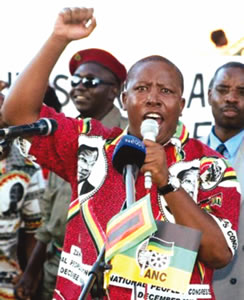Adopt climate friendly policies
self-detonate.
There is a genuine threat that humankind is faced with extinction and just this feeling of hopelessness has got hearts beating fast.
I am talking about climate change, the effect that human existence in managing and mismanaging mother earth has led to a gradual and sustained destruction of the only planet that sustains human life.
Several centuries of development in science, medicine and industrialisation, etc, have been great and made life easier and enjoyable.
But all this has come at a huge cost, the gradual depletion of planet earth.
Toxic gases such as carbon dioxide, radioactive gases have been released into the atmosphere while people have ruthlessly destroyed vegetation that supply us with oxygen.
Industrialisation has resulted mostly in rising temperatures, which is making the earth’s surface much warmer.
Global warming, as it is generally known, threatens to wipe away some islands from the face of the earth due to rising sea levels and has also impacted the earth’s cooling effect on the icy North Pole.
There is little hope in sight that global warming is about to stop or markedly recede.
The International Atomic Energy Agency says the world’s industries are emitting up to 30 billion tonnes of carbon dioxide per year.
Between 2009 and 2010 greenhouse gas emissions rose by 5 percent and at this rate climate experts say it will be impossible to contain global temperatures from rising above the targeted two degrees Celsius.
They have predicted that the current growth in carbon dioxide emissions will, in fact, pose a great danger to the world temperatures and could rise by a dreadful four to five degrees Celsius by 2050.
And yet, Africa has been at the mercy of such dangerous emissions even when it is the least polluter.
The continent’s deserts are predicted to become even hotter while wet areas are becoming drier.
Rainfall patterns are also now erratic and weather conditions are increasingly becoming unpredictable.
In Zimbabwe alone, temperatures have risen by 0,4 degrees Celsius since 1900, according to the United Nations.
In the last decade, the country has experienced severe flooding (Cyclone Eline in 2000), and was also shocked by tremors of a destabilising earthquake whose epicentre was in the Indian Ocean in 2006.
During the 2010/2011 rainy season, the Civil Protection Unit issued flood warnings for residents in low-lying areas.
Zimbabwe is now experiencing hotter summers and colder, longer winters while rainfall patterns are also changing rapidly. The meteorological department predicts rainfall distribution will be very uneven and temperatures will continue to rise thereby making agriculture planning very difficult, yet it is a key contributor to the country’s GDP.
Now, the impact global warming has had on the world climate is there for all to see.
It is a nightmare come true, the hope of the world is failing. Man is no longer certain that his own actions will be able to completely deal with climate change.
World leaders must act fast.
So far they have managed to continue bickering on targets for reduction of gas emissions.
The Unite States and China, which produce a combined 50 percent of the world’s carbon dioxide, have been reluctant to commit to these targets (Copenhagen 2010).
The occurrences in the world today (earthquakes, floods, wars, disease, famine, etc) are not driven by some blind random force.
There is a higher force at work, which cannot be seen or felt by our physical senses.
The earth’s safety is like a controlled destiny.
However, there is hope and mankind has an active role to play in curbing the effects of climate change.
Already we are talking about moving to cleaner energies from the current over-reliance on fossil fuels, which are a major driver of the changes in temperatures.
Germany has been scared by the recent Fukushima disaster in Japan.
It has now announced the shutting down of all of its 17 nuclear reactors by 2022 and move towards cleaner renewable energy sources such as wind.
Governments across the world have started taking serious actions in adopting policies that are friendly to climate.
There is hope to curtail the effects of climate change on human settlements, agriculture, health, ecosystems and water distributions amongst other factors.
But several questions remain unanswered.
Are these the end times, the signs preluding the rapture of the church and the second coming of our Lord Jesus Christ?
What is the position of the Holy Bible in all this and how should mankind respond?
Really what is the hope for the future of the world and this our planet earth?
From any angle one might be looking, global warming is a reality the world needs to confront head-on.
The world climate is changing for the worse.
Our lives and environment are at stake, even more disastrous for posterity if we do not do anything in the present age.
Major within all this horror is how people will be able to adapt in the changing world order and global warming to ensure life is carried on in a habitable atmosphere, by humans but ultimately through observing the word of God as the basis for life.
God is faithful.
- Let’s share ideas on the climate story. Send email to [email protected]












Comments